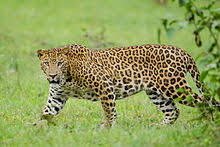Animal, plant and marine biodiversity keep our ecosystems functional.
Last week, India submitted its sixth national report to the United Nations Convention on Biological Diversity. The report was a mixed one: While the country is on track to meet most of its national biodiversity targets, the bad news is that the list of animal species from the country under the international ‘red list’ in the critically endangered, endangered and threatened categories has been increasing over the years. It is clear that there is severe stress on biodiversity and wild habitats. The report states that India is working on preventing the extinction of species by developing a landscape- and seascape-based approach. This aims at holistic, systemic approaches to integrate biodiversity concerns with social and economic values and development aspirations. The endangered species (birds and animals) in conservation priority include the Asian wild buffalo, Asiatic lion, Brow-antlered deer or Sangai, Dugong, Edible Nest swiftlet, Gangetic river dolphin, Great Indian bustard, Hangul, Indian rhino or Great one-horned rhinoceros, Jerdon’s courser, Malabar civet, Marine turtles, Nicobar megapode, Niligiri tahr, snow leopard, swamp deer and vultures.
The stress on India’s wildlife is increasing by the day. Almost every other day, there are reports of cases of man-animal conflict, thanks to the increasing human population and urbanisation. Just as often, there are reports of or animal deaths from accidents because project developers don’t take into account animal corridors while building infrastructure. Wildlife crime is also becoming a key threat due to the increased demand for wildlife derivatives ranging from tiger and leopard bones to pangolin scales and bear bile. India recorded 460 leopard deaths in 2018, the highest mortality rate of the big cat species in the country in the last four years, the Wildlife Protection Society of India said in December.
How does the loss of species alter ecosystems? The loss of iconic species is a tragedy with broad and deep impact. Animal, plant and marine biodiversity keeps ecosystems functional. Healthy ecosystems allow us to survive, get enough food to eat and make a living. When species disappear or fall in number, ecosystems and people — especially the world’s poorest — suffer. A recent study published in Nature reveals the extinction of plant or animal species from extreme environmental change, which we are witnessing now, increases the risk of an “extinction domino effect” that could annihilate all life on Earth.
Unfortunately, as this paper reported earlier this year, India might not meet the international target of identifying wildlife and marine-protected areas by 2020, making the challenge of conserving species much more difficult.
Article Credit : HT

